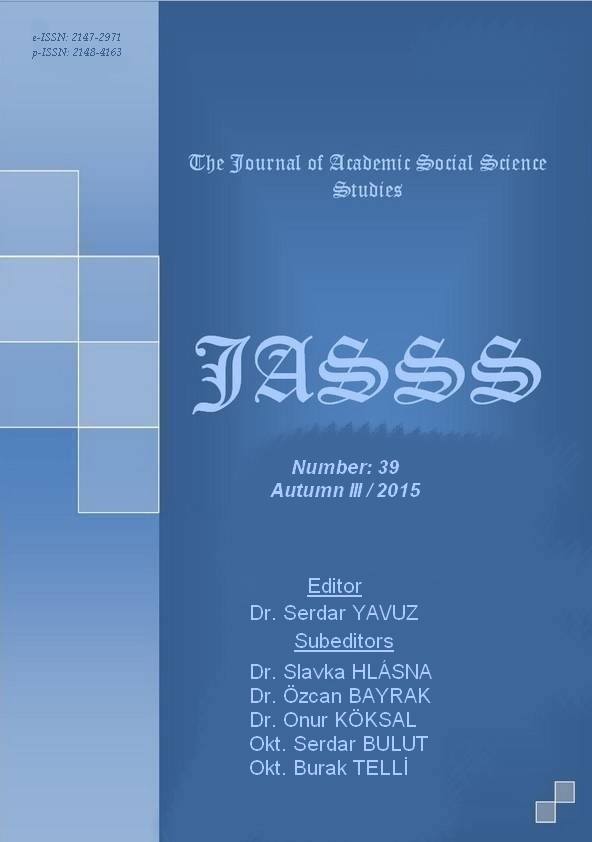Author :
Abstract
II. Abdülhamid’i iktidara taşıyan güç, meşrutiyet yanlısı Genç Osmanlılar hareketidir. Ancak II. Abdülhamid, padişah olduktan sonra ilan ettiği meşrutiyeti, meclisi kapatarak (tatil ederek) bir anlamda feshetmiştir. Sergilediği yönetim şekliyle kendisini tahta taşıyan muhalif yapıyı yeniden canlandırmıştır. Aynı isimlerden oluşan muhalefet meşrutiyeti tekrar ilan ettirebilmek amacıyla hareket etmiş ve Sultan Abdülhamid’i tahttan indirme girişimlerinde bulunmuştur. Bu esnada Avrupa genelinde yaşanan gelişmeler, dış politikada bir müttefik bulma zorunluluğunu veya siyasetini gündeme getirmiş ve 19. yüzyılının sonuna doğru Almanya ile başlayan olumlu ilişkiler, iki devleti birbirine yaklaştırmıştır. Aynı zamanda Batılı devletlerin kendi aralarındaki çıkar çatışmalarından yararlanma düşüncesi de benimsenerek ona göre politikalar üretilmiştir. Devletin içinde bulunduğu kötü durumdan kurtulabilmesi için ekonominin dışa bağımlılıktan kurtarılması gerektiğine olan inançla dizayn edilen ekonomi siyaseti, Sultan Abdülhamid’i dışarıda denge sağlayacak bir politika benimsemeye itmiştir. Bir cemiyet olarak kurulmuş olan İttihat ve Terakki Partisi ise, yurt içi ve dışında hızla örgütlenerek düşüncelerini basın yayın yoluyla yaymak istemiş ve Kanun-i Esasi’yi tekrar yürürlüğe koydurtarak Meclis-i Mebusan’ın açılmasını sağlamaya gayret etmişlerdir. Sergiledikleri muhalefet sonuç verince II. Abdülhamid tahttan indirilmiş ve devlet yönetiminde hâkim otorite konumuna erişmişlerdir. Yöneticilerinin Avrupalı devletlerle ilgili siyasi tercih ve çabaları sonuçsuz kaldıktan sonra, Alman yanlısı olan yöneticilerinin de etkisiyle Almanya’yla siyasi ittifak yapılmıştır. Sonuçta I. Dünya Savaşı başlayınca, Almanya’nın savaşı kazanacağına ve bu sayede kaybedilen toprakların geri alınacağına olan inançları, fazla düşünmeden ve hazırlık yapmadan Osmanlı Devleti’ni savaşa dâhil etmiştir.
Keywords
Abstract
The power that put Abdülhamid II into power was the Young Ottoman Movement that was a pro-constitutionalism movement. However, after Abdülhamid II became the sultan, he in a way abolished the constitutionalism that he had declared by closing (prorogue) the parliament. With his ruling system, he revived the opposing structure that carried him to the throne. The opposition that consisted of the same names acted to have constitutionalism declared once more and they attempted to dethrone Sultan Abdülhamid. In the meantime, the developments in Europe brought up the necessity and policy to find an ally in foreign politics and the positive relations that started with Germany towards the end of 19th century brought two countries closer. At the same time, the thought of benefiting from the conflicts of interest between European countries was adapted and policies were developed accordingly. The economic policy which was designed with the belief that the country had to be saved from being foreign-dependent in order to get rid of the bad situation that the country was in pushed Sultan Abdülhamid to adapt a policy that would cause a foreign equilibrium. The Party of Union and Progression that was initially founded as a committee wanted to spread its thoughts through media by organizing at a fast pace both inside and outside the country and tried to have the Parliament of Deputies reopened by bringing the Ottoman basic law into force again. When their opposition was successful, Abdülhamid II was overthrown and they became the sovereign authority in ruling the country. After the political choices and efforts of their rulers about European countries came to a dead end, they had a political alliance with Germany as a result of the effect of pro-Germany rulers. Consequently, their beliefs that Germany would win the World War I and thus they could get back the land lost caused the Ottoman Empire to take part in the war without thinking much and making preparations.





